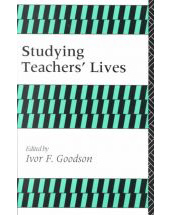Studying Teachers' Lives
Studying Teachers' Lives - problems and possibilities
He provides a particular reason why accounts 'from below' may be unwelcome:
officials usually have to lie. That is a gross way of putting it, but not inaccurate. Officials must lie because things are seldom as they ought to be. For a great variety of reasons, well-known to sociologists, institutions are refractory. They do not perform as society would like them to. Hospitals do not cure people; prisons do not rehabilitate prisoners; schools do not educate students. Since they are supposed to, officials develop ways both of denying the failure of the institution to perform as it should and explaining those failures which cannot be hidden. An account of an institution's operation from the point of view of subordinates therefore casts doubt on the official line and may possibly expose it as a lie[i].
For these reasons the academy normally accepts the 'hierarchy of credibility': 'we join officials and the man in the street in an unthinking acceptance of the hierarchy of credibility. We do not realize that there are sides to be taken and that we are taking one of them.' Hence Becker argues that for the academic researcher:
The hierarchy of credibility is a feature of society whose existence we cannot deny, even if we disagree with its injunction to believe the man at the top. When we acquire sufficient sympathy with subordinates to see things from their perspective, we know that we are flying in the face of what 'everyone knows'. The knowledge gives us pause and causes us to share, however briefly, the doubt of our colleagues[ii].
Research work, then, is seldom disinterested and prime interests at work are the powerful, Becker's 'man at the top', and the academy itself. Acknowledgement of these interests becomes crucial when we conduct studies of teachers' lives; for the data generated and accounts rendered can easily be misused and abused by both powerful interest groups and by the academy. Middleton notes that 'in schools people are constantly regulated and classified' but this surveillance extends to teachers themselves. Plainly studies of teachers' lives can be implicated in this process unless we are deeply watchful about who 'owns' the data and who controls the accounts. If Becker is right that 'officials lie' it is also plain that they might appropriate and misuse data about teachers' lives. Likewise, those in the academy might take information on teachers' lives and use it entirely for their own purposes.
[i] ibid., p. 128.
[ii] ibid., p. 129.
